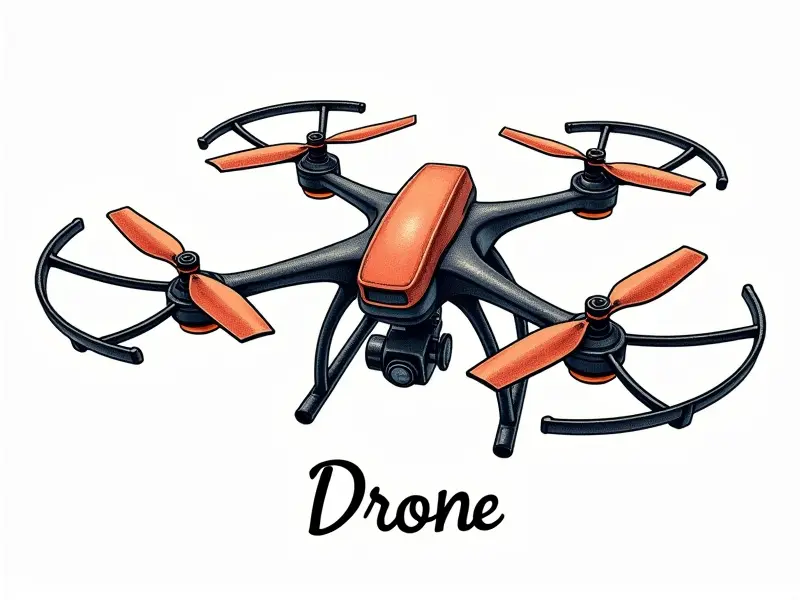What is a Li-Po cell?

Understanding Li-Po Batteries Basics
Lithium Polymer (Li-Po) batteries are advanced energy storage devices that have become the go-to choice for many applications, especially in the realms of radio-controlled (RC) vehicles and drones. These batteries offer a combination of high power density, light weight, and flexibility that makes them ideal for portable electronics and high-performance gadgets.
Benefits of Li-Po Cells for RC
The advantages of using Li-Po cells in RC models are numerous:
- High Energy Density: Li-Po batteries can store a large amount of energy relative to their size and weight.
- Lightweight Construction: They are significantly lighter than NiMH or NiCd batteries, allowing for better performance in RC vehicles.
- Voltage Stability: Li-Po cells maintain a relatively stable voltage throughout the discharge cycle, providing consistent power delivery.
Why Use Li-Po Cells in Drones?
Drones benefit greatly from the use of Li-Po batteries due to their high energy density and lightweight nature. This allows drones to achieve longer flight times and better maneuverability:
- Prolonged Flight Time: The ability to store more power in a smaller package means that drones can stay airborne for extended periods.
- Better Power-to-Weight Ratio: A lighter battery reduces the overall weight of the drone, improving its performance and efficiency.
How Do Li-Po Cells Work?
Lithium Polymer cells operate on a principle that involves lithium ions moving between two electrodes (anode and cathode) through an electrolyte. During discharge:
- Discharge Phase: Lithium ions move from the anode to the cathode, releasing electrons in the process.
- Charge Phase: When charging, lithium ions flow back to the anode, storing energy for later use.
Choosing the Right Li-Po Capacity
Selecting the appropriate capacity is crucial for optimal performance. Key factors include:
- Aircraft Weight and Size: Larger or heavier drones require higher-capacity batteries to achieve adequate flight times.
- Purpose of Use: Racing drones need high discharge rates, while photography drones may prioritize longer battery life.
Maximizing Li-Po Battery Lifespan
To extend the lifespan of your Li-Po batteries, follow these tips:
- Avoid Overcharging and Deep Discharge: Charging to 4.2V per cell and discharging down to 3.0V is recommended.
- Store at Optimal Conditions: Keep batteries in a cool, dry place away from direct sunlight.
Common Li-Po Cell Myths Debunked
Several misconceptions surround the use of Li-Po cells. Here are some common myths debunked:
- Myth: All Li-Po Batteries Are Created Equal. Reality: Different brands and models vary in quality, capacity, and performance.
- Myth: You Can Overcharge Without Consequences. Reality: Overcharging can lead to reduced battery life or even fire hazards.
Li-Po Cell Safety Tips Explained
Safety is paramount when handling Li-Po batteries. Follow these guidelines:
- Use Proper Charging Equipment: Invest in a quality charger with built-in safety features.
- Monitor Temperature and Voltage: Keep an eye on the battery's temperature during charging to prevent overheating.
Best Li-Po Cells for FPV Racing
For First Person View (FPV) racing, high-discharge rate batteries are essential. Look for cells with:
- High C-Ratings: Higher discharge rates ensure that the battery can handle the demands of fast-paced racing.
- Balanced Charging: Use a balanced charger to maintain equal voltage across all cells, ensuring optimal performance and longevity.
Charging Your Li-Po Cells Properly
Proper charging techniques are crucial for maintaining battery health. Follow these steps:
- Select the Right Charger: Use a charger designed specifically for Li-Po batteries.
- Balanced Charging: Ensure that all cells in your pack charge evenly to prevent imbalance and potential damage.
What Are Li-Po Cells in RC?
Lithium Polymer (Li-Po) cells are the preferred choice for radio-controlled vehicles due to their high energy density, lightweight construction, and ability to deliver consistent power. They offer superior performance compared to older battery technologies like NiMH or NiCd.
Conclusion
In summary, Li-Po batteries provide a range of benefits that make them indispensable in the world of RC vehicles and drones. By understanding their operation, choosing the right capacity, maximizing lifespan, adhering to safety guidelines, and selecting high-quality cells for specific applications like FPV racing, users can fully leverage the advantages these advanced battery technologies offer.

